Questionas of a few weeks ago she started to have to go to the bathroom a lot she is an older dog 11 and is my daughters. she will sometimes wine and then pee on the floor or we will just make a mess she has been a great dog and this is new even after we take her out she will sometimes still have an accident what can we do to help her we really don't know at this point what the problem is the vet just blamed it on age but i don't belive that she does not really drink that much can you help with some advice please
AnswerHi Pete,
It is important to consider several different things when dealing with incontinence. As a first step it is important to establish that the problem really is incontinence and not just an increase in the need to urinate causing the dog to urinate in the house because it has to. As an older dog she may need to go out more often, so you need to adjust your schedule and provide her with those additional walks.
There are disorders that increase the amount of urine produced and therefore the need to urinate include diabetes mellitus, hyperadrenocorticism (Cushing's disease), diabetes insipidus, uterine infections, kidney failure, administration of corticosteroids and some other medications and other more infrequent causes.
It is important to let your vet know if your dog is drinking more than normally and urinating larger volumes than normal. There are also diseases and disorders that increase the urge or need to urinate without an
increase in actual urine volume. These include cystitis, bladder stones or stones elsewhere in the urinary tract, cancer in the urinary tract.
It's actually fairly common for older spayed female dogs to have a problem with urinary incontinence, in a condition called hormonally responsive incontinence. Spaying does not damage the urinary sphincter muscles, it does cut down on the estrogen levels in the female dog's body, though. This can lead to a loss of muscle tone and possibly mucosal thickness in the bladder, which does often lead to incontinence. Most dogs with this condition will respond to estrogen supplementation.
There are also a number of disorders that are considered to be forms of incontinence that are not related to estrogen levels. Neurologic disorders affecting the nerve supply to the bladder can lead to incontinence. There
are several classes of these disorders. In general the bladder is large and distended due to the loss of nerve function.
So you see, there are several conditions that need to be ruled out. You next step should be returning to your vet for some diagnostic tests so that you can rule out what's not going on, and pinpoint the cause of your dog's incontinence.
I hope I've been a help.
Best of lucks,
Patti

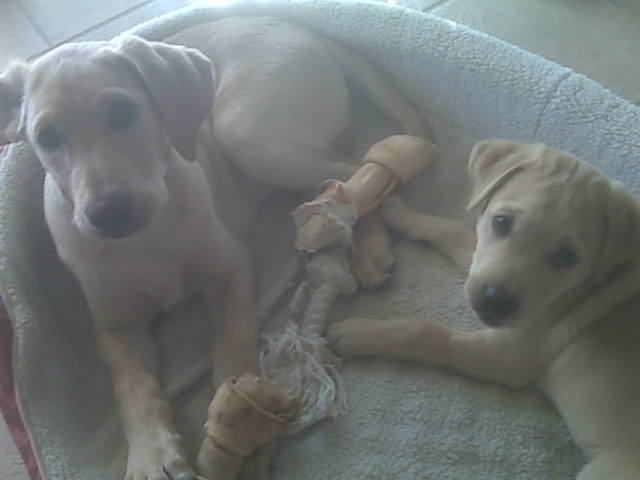 2 puppies one lab the other lab/shepherd mix
Question
Bailey ( female lab) a
I have a 3 1/2 month ol
2 puppies one lab the other lab/shepherd mix
Question
Bailey ( female lab) a
I have a 3 1/2 month ol
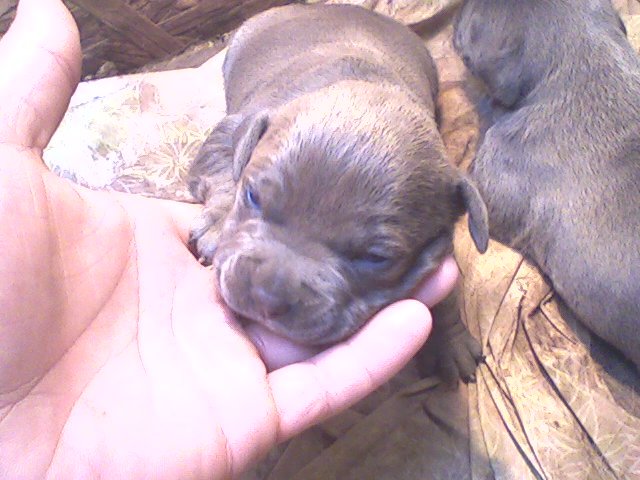 Puppy help? does this look like a nice quality puppy?
Question
3 weeks old
im getting this blue nose puppy so
Puppy help? does this look like a nice quality puppy?
Question
3 weeks old
im getting this blue nose puppy so
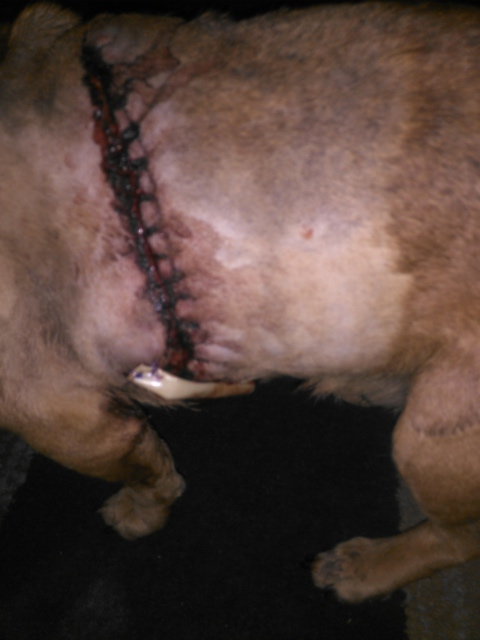 tumor on my dog
Question
stitched up second tim tumor
My d
tumor on my dog
Question
stitched up second tim tumor
My d
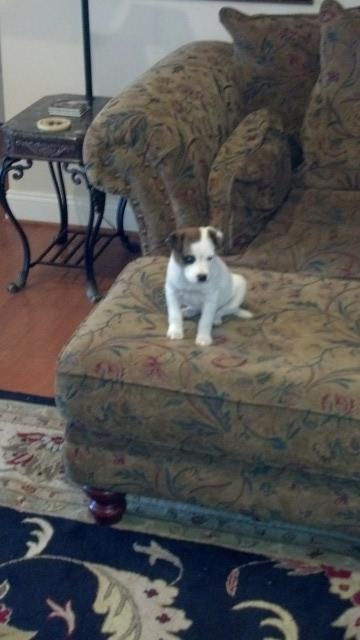 new puppy
Question
bella
I adopted a puppy from the humane
new puppy
Question
bella
I adopted a puppy from the humane
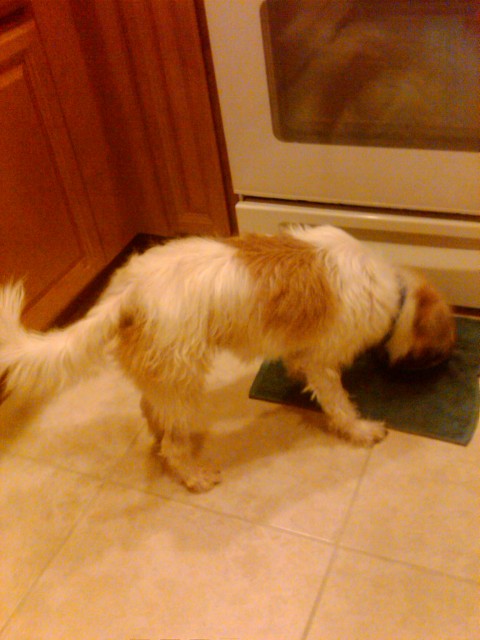 How do I groom my mixed breed terrier?
Question
Oliver
Hi Susan!
I recently rescued a wonderfu
How do I groom my mixed breed terrier?
Question
Oliver
Hi Susan!
I recently rescued a wonderfu